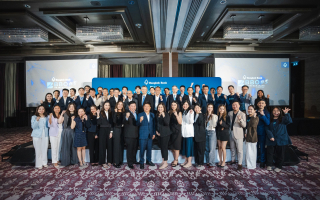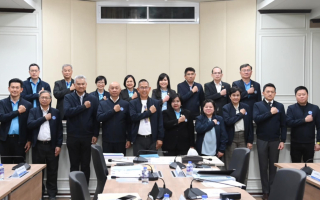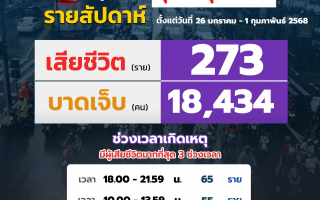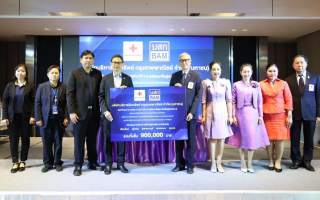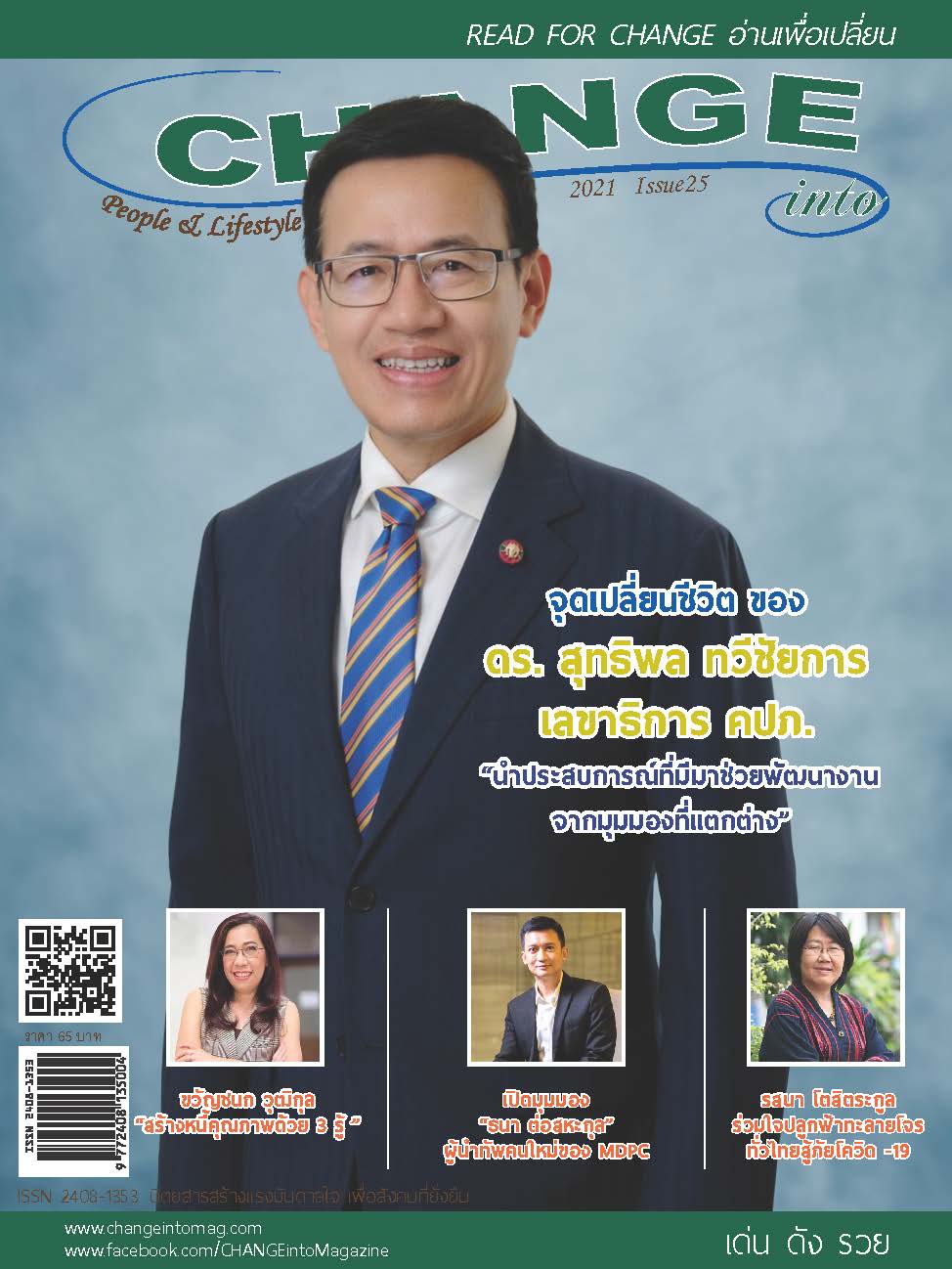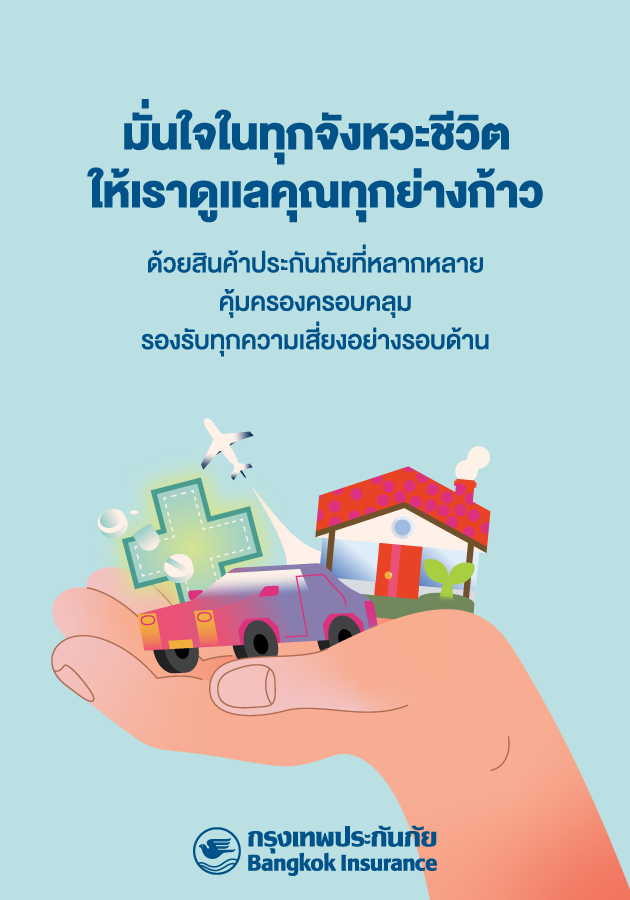เจนเนอราลี่ แนะ 5 แนวทาง MSMEs สร้างธุรกิจให้เติบโตอย่างมั่นคง

เจนเนอราลี่ แนะ 5 แนวทาง MSMEs สร้างธุรกิจให้เติบโตอย่างมั่นคง
หลายปัจจัยที่อาจทำให้ธุรกิจขนาดกลาง ขนาดย่อม และรายย่อย (MSMEs) ต้องเผชิญกับความเสี่ยงทางธุรกิจที่ไม่อาจควบคุมได้ เช่น ภัยพิบัติทางธรรมชาติ ภาวะโลกร้อน มลพิษทางอากาศ น้ำท่วม รวมถึงการเกิดโรคระบาด ซึ่งยังคงเป็นความท้าทายสำคัญที่ผู้ประกอบการต้องรับมือ ล่าสุดเจนเนอราลี่ ไทยแลนด์ ได้รวบรวม 5 แนวทางสำคัญที่จะช่วยให้ผู้ประกอบการสามารถปรับตัวและก้าวข้ามความท้าทายไปได้อย่างมั่นคงและยั่งยืน ดังนี้
เริ่มกันที่การวางแผนธุรกิจและบริหารความเสี่ยง ผู้ประกอบการ MSMEs ควรเริ่มต้นด้วยการประเมินปัจจัยเสี่ยงที่อาจส่งผลกระทบ เพื่อรับมือกับสถานการณ์ที่ไม่คาดคิด เช่น การขาดแคลนวัตถุดิบ การเปลี่ยนแปลงพฤติกรรมผู้บริโภค การจัดสรรเงินทุนสำรองเพื่อรองรับค่าใช้จ่ายในยามฉุกเฉิน ไม่ว่าจะเป็นค่าเช่าสถานที่ หรือค่าจ้างพนักงาน การพัฒนาซัพพลายเชนสำรอง (Backup Supply Chain) การวางแผนความต่อเนื่องทางธุรกิจ (BCP) เช่น การสร้างแผนสำรองการจัดการซัพพลายเชน หรือการกำหนดขั้นตอนฟื้นฟูธุรกิจ
ถัดมาคือ การกระจายความเสี่ยงในธุรกิจ เป็นกลยุทธ์สำคัญที่ช่วยลดความเปราะบาง โดยเฉพาะธุรกิจที่พึ่งพารายได้จากแหล่งเดียว การพัฒนาสินค้าและบริการใหม่ ๆ ที่ตอบโจทย์ความต้องการของตลาด จึงถือเป็นก้าวสำคัญที่ช่วยให้ธุรกิจสามารถตอบสนองต่อการเปลี่ยนแปลงของพฤติกรรมผู้บริโภคได้อย่างทันท่วงที เช่น การขายสินค้าสุขภาพหรือสินค้าอุปโภคบริโภคที่จำเป็นในช่วงโรคระบาด ถือเป็นทางเลือกที่เพิ่มความยืดหยุ่นให้กับธุรกิจ การสำรวจตลาดใหม่ โดยเฉพาะการเข้าถึงกลุ่มลูกค้าออนไลน์ผ่านแพลตฟอร์มอีคอมเมิร์ซ ซึ่งช่วยให้ธุรกิจสามารถกระจายความเสี่ยงและขยายโอกาสในการเติบโตจากตลาดท้องถิ่นสู่ตลาดระดับประเทศได้อย่างรวดเร็ว
การเข้าร่วมเครือข่ายและความร่วมมือ การเข้าร่วมในกลุ่มพันธมิตรทางธุรกิจทั้งภาครัฐ และ เอกชน เป็นอีกหนึ่งแนวทางที่ช่วยเพิ่มความแข็งแกร่งให้ MSMEs โดยการ เสริมการเข้าถึงข้อมูลด้านต่าง ๆ เช่น ข้อมูลด้านการตลาด การบริหารความเสี่ยง จากการการเข้าถึงข้อมูลเหล่านี้ รวมถึงการเข้าร่วมโครงการสนับสนุนจากวิสาหกิจชุมชน หน่วยงานในพื้นที่ หรือการขอคำปรึกษาจากผู้เชี่ยวชาญในอุตสาหกรรม จะช่วยลดต้นทุนและเพิ่มศักยภาพให้ธุรกิจสามารถแข่งขันได้ดีขึ้น ยังช่วยเปิดโอกาสในการพัฒนาธุรกิจอย่างยั่งยืน

นอกจากนี้ การดูแลพนักงานและลูกจ้าง เป็นอีกหนึ่งประเด็นที่กลุ่ม MSMEs ควรให้ความใส่ใจเป็นอย่างมากเพราะการดูแลพนักงานให้มีสุขภาพกายและจิตที่ดีไม่เพียงช่วยสร้างความมั่นใจและความทุ่มเท แต่ยังส่งเสริมบรรยากาศการทำงานที่ดีอีกด้วย การป้องกันด้วยประกันภัยและแผนสำรอง เป็นตัวช่วยในการลดความเสี่ยงทางการเงินจากเหตุการณ์ไม่คาดฝัน เช่น ภัยพิบัติทางธรรมชาติ หรือ โรคระบาด รวมถึงการทำประกันสุขภาพสำหรับพนักงานช่วยสร้างความเชื่อมั่น และซึ่งสวัสดิการด้านสุขภาพนั้นนอกจากจะช่วยดึงดูดให้คนอยากมาร่วมงานกับองค์กรแล้ว ยังช่วยแบ่งเบาภาระค่าใช้จ่ายยามเจ็บป่วย ช่วยให้พนักงานและลูกจ้างเข้าถึงการรักษาได้อย่างรวดเร็ว ช่วยป้องกันและลดผลกระทบระบาดหรือแพร่เชื้อ ขณะที่ประกันภัยความเสียหายทางธุรกิจ เช่น ประกันอัคคีภัย หรือประกันภัยทรัพย์สิน ช่วยป้องกันความสูญเสียที่อาจเกิดขึ้น ช่วยให้ธุรกิจสามารถฟื้นตัวได้รวดเร็วและลดผลกระทบทางการเงินในระยะยาว
และสุดท้าย การปรับตัวเข้าสู่ดิจิทัล และส่งเสริมทักษะใหม่ เป็นอีกหนึ่งเรื่องสำคัญในการวางแผนธุรกิจในยุคปัจจุบันทำให้ MSMEs จะเห็นได้ว่าในสถานการณ์แพร่ระบาดของโควิด-19 และการล็อกดาวน์ที่ผ่านมาผู้ประกอบการที่สามารถปรับตัวได้เร็ว และเปลี่ยนไปใช้แพลตฟอร์มออนไลน์ เช่น อีคอมเมิร์ซ โซเชียลมีเดีย หรือฟู้ดเดลิเวอรี่ สามารถเพิ่มโอกาสในการเข้าถึงลูกค้าและลดผลกระทบจากการล็อกดาวน์ได้ การลงทุนในระบบจัดการข้อมูล ซอฟต์แวร์คลาวด์ และช่องทางชำระเงินออนไลน์ยังช่วยเพิ่มประสิทธิภาพ ลดต้นทุน และเสริมความคล่องตัวให้ธุรกิจสามารถตอบสนองต่อความเปลี่ยนแปลงได้อย่างรวดเร็ว การฝึกให้พนักงาน หรือลูกจ้างเรียนรู้สิ่งใหม่ ๆ และปรับตัวอยู่เสมอ เช่น การพัฒนาทักษะด้านเทคโนโลยี การตลาดออนไลน์ และการนำนวัตกรรมใหม่ ๆ มาใช้ ช่วยเพิ่มความสามารถในการแข่งขัน ขณะเดียวกัน การติดตามแนวโน้มของตลาดและการใช้ข้อมูลเชิงลึกในการวางกลยุทธ์ ยังช่วยให้ธุรกิจสามารถปรับตัวและตอบสนองต่อความต้องการของลูกค้าได้อย่างทันท่วงที เสริมความยืดหยุ่นและสร้างโอกาสในการเติบโตและรักษาความสำเร็จในระยะยาว
ติดตามเคล็ดลับและแนวทางในการพัฒนาธุรกิจ MSMEs ได้ที่ https://generali.co.th/en/articles/ เพื่อไม่พลาดโอกาสดี ๆ ที่จะช่วยยกระดับธุรกิจของคุณให้พร้อมรับมือกับความท้าทายในอนาคต

Building Resilient Businesses: 5 Key Strategies to Empower MSMEs against Uncontrollable Risks
Micro, Small, and Medium Enterprises (MSMEs) are vulnerable to diverse uncontrollable business risks, such as natural disasters, global warming, air pollution, floods, and disease outbreaks. These remain critical challenges for entrepreneurs. In response, Generali Thailand has identified five key strategies to help businesses build resilience and navigate these challenges for sustainable growth, as follows:
Business planning and risk management are key starting points. MSME entrepreneurs should assess potential risk factors to prepare for unexpected situations, such as raw material shortages and changes in consumer behavior. Such preparation requires allocating reserve funds for emergency expenses, such as rent and salaries, developing a backup supply chain, and establishing a business continuity plan (BCP), including creating a supply chain contingency plan and defining business recovery procedures.
A further key strategy is business diversification, which helps reduce vulnerability, particularly for businesses reliant on a single income source. Developing new, market-relevant products and services is vital for adapting to shifting consumer preferences. For instance, offering health and essential goods during outbreaks gives businesses greater flexibility. Exploring new markets, especially by leveraging e-commerce platforms to reach online customers, allows businesses to diversify risk and rapidly capitalize on growth opportunities from local to national markets.
Joining networks and collaborations, including alliances with public and private sector organizations, is another strategy for strengthening MSMEs. These collaborations provide access to valuable resources, such as marketing data and risk management strategies. By leveraging these resources, participating in projects supported by community enterprises or local agencies, and consulting with industry experts, businesses can reduce costs, enhance their competitive edge, and create pathways for sustainable growth.
Moreover, prioritizing employee well-being is essential for MSMEs. Supporting employees' physical and mental health not only fosters confidence and dedication but also contributes to a positive and productive work environment. Implementing insurance and contingency plans is a key strategy for mitigating financial risks associated with unforeseen events such as natural disasters and disease outbreaks. Providing employee health insurance not only enhances employee confidence and attracts talent but also reduces the financial burden of illness, ensuring timely access to medical care and helping to prevent and control the spread of infectious diseases. Furthermore, business damage insurance, including fire and property insurance, provides protection against potential losses, facilitating business recovery and minimizing long-term financial consequences.

Lastly, adapting to the digital landscape and fostering new skills is critical to contemporary business planning. The COVID-19 pandemic and subsequent lockdowns demonstrated that entrepreneurs who rapidly transitioned to online platforms, such as e-commerce, social media, and food delivery services, were better positioned to reach customers and minimize the adverse effects of restrictions. Investing in robust data management systems, cloud-based software solutions, and secure online payment gateways enhances operational efficiency, reduces costs, and empowers businesses with the agility to respond effectively to market dynamics. Furthermore, providing ongoing training and development opportunities for employees and staff, focusing on technological proficiency, online marketing expertise, and integrating innovations strengthens their competitive advantage. Monitoring market trends and using data-driven insights further enable businesses to adapt to customer needs, enhancing resilience and driving long-term growth and success.
Follow tips and guidelines for developing MSME businesses at https://generali.co.th/en/articles/ to seize valuable opportunities, elevate businesses, and stay prepared for future challenges.


